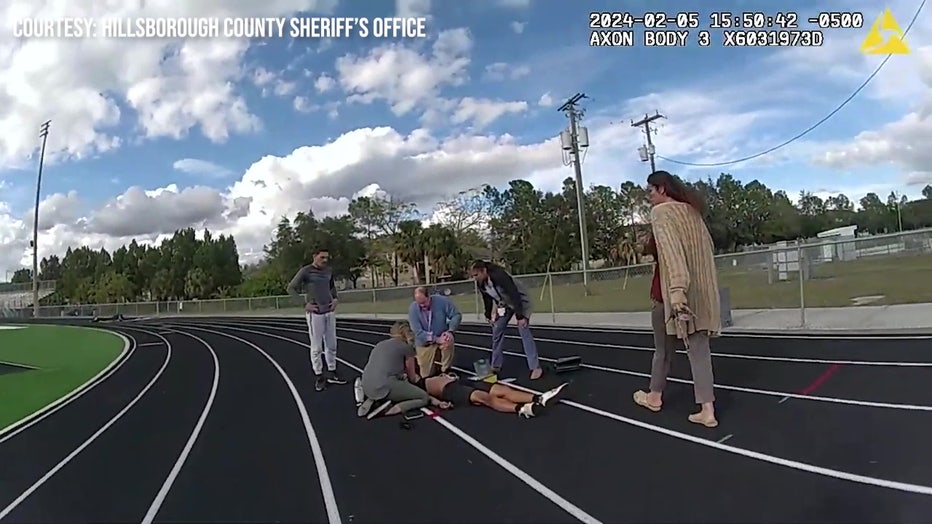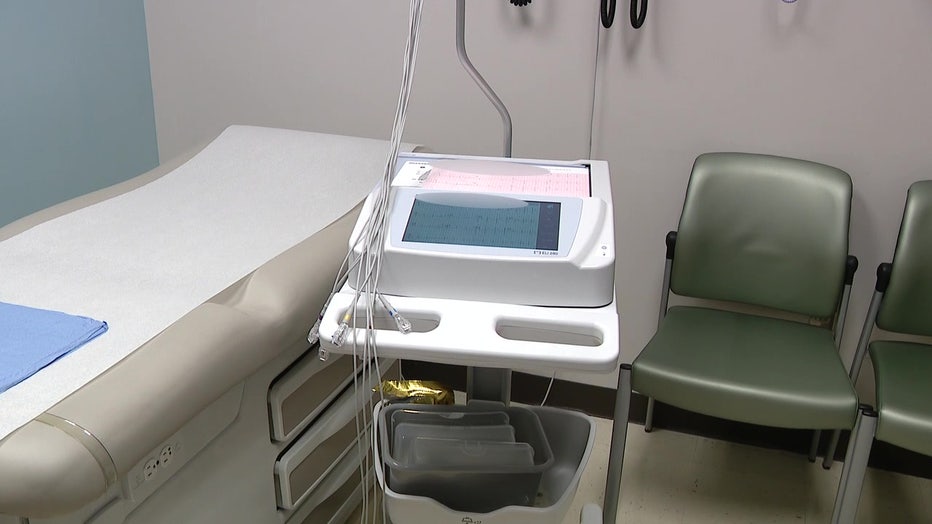Florida bill requiring heart screenings for student athletes heads to governor's desk

Push for student athlete EKG screenings
Florida lawmakers have passed a bill requiring electrocardiograms for student athletes, a measure that doctors hope will save young lives. FOX 13’s Briona Arradondo reports.
TAMPA, Fla. - Pediatric cardiologists are hopeful that electrocardiograms will soon be required for student athletes, as a bill passed by Florida lawmakers heads to the governor’s desk.
The backstory:
There have been several student athletes that have collapsed on the field in recent years in the Tampa Bay region. Last year, Ansel Laureano collapsed from cardiac arrest at Leto High School in Hillsborough County, and a coach and deputy helped save him using an AED and CPR. Today, his mother is thankful her son bounced back, alive and well.
"When Ansel was in the hospital, the doctor said to me, maybe he never awakes, or he can be like a vegetable after," said Bismeiry Lantigua Cruz, Ansel's mother. "That situation is something, I don't want nobody to go through this, because it's, it's a lot."

Courtesy: Hillsborough County Sheriff's Office.
Dig deeper:
A bill passed by the Florida Senate on Thursday, and now headed to Gov. Ron DeSantis, aims to help prevent that. The Second Chance Act or Senate Bill 1070, if signed, would require all student athletes to get an electrocardiogram or EKG/ECG before they can compete on school teams. It also applies to tryouts, conditioning and practice. Currently, it’s not mandatory in all counties.
"We basically take the stickers and put them on your chest and your arms and legs, and then hook these wires up to it that can detect the electrical activity of your heart," said Dr. Anjlee Patel, a pediatric cardiologist at AdventHealth Tampa.
Dr. Patel said EKGs take about 10 to 15 seconds to show them things like heart blocks or murmurs.

The Second Chance Act, if signed, would require all student athletes to get an electrocardiogram or EKG/ECG before they can compete on school teams.
"We can also see lethal arrhythmias that patients might be predisposed to that sometimes don't show up as signs or symptoms of chest pain or dizziness or shortness of breath when they're playing sports. Sometimes the first sign is actually sudden cardiac arrest," said Patel.
A screening would pick up on potentially life-saving information and get the student on track for treatment to keep playing safely.
"I never want to see anything like that ever happen to my child or anybody else's for that matter," said Patel.
Hurricane season begins June 1: Here’s what to know
In Ansel’s case, his mom, Lantigua Cruz, said her son had no heart condition before his incident and hasn’t been diagnosed with anything since then. She said it was a one-time incident, but she took him to a heart specialist for checkups. She believes a law with mandatory heart screenings can protect students, but she believes students should speak up and listen to their bodies if they are pushing too hard before cardiac arrest happens.
"If you don't do the test, if you don't any test, you know it's like no way you can know that can happen to you," said Lantigua Cruz.
The bill would have the Florida High School Athletic Association work with private and public entities to provide low-cost or free EKG screenings. FHSAA sent a statement to FOX 13 saying, "Cardiac screenings are already recommended, per the FHSAA. In addition, the FHSAA would support any legislation that improves the health and safety of our student-athletes."
Dr. Patel said AdventHealth for Children offers EKG screening for students from ages 10 to 25 for $15 in Central and West Florida.
The Source: Information for this story was gathered by FOX 13's Briona Arradondo.
STAY CONNECTED WITH FOX 13 TAMPA:
- Download the FOX Local app for your smart TV
- Download FOX Local mobile app: Apple | Android
- Download the FOX 13 News app for breaking news alerts, latest headlines
- Download the SkyTower Radar app
- Sign up for FOX 13’s daily newsletter

